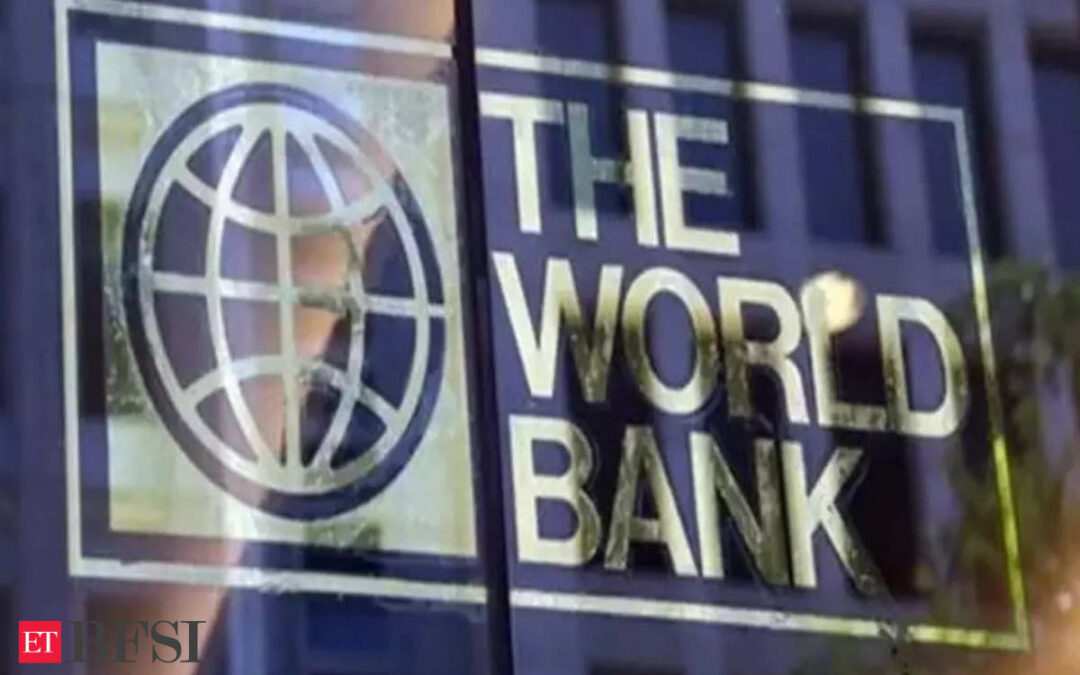MARRAKECH: World Bank group’s India-born chief economist Indermit Gill is upbeat on India’s focus on infrastructure, digital public goods and overall economic management. In an interview with TOI, he calls for special attention on lowering debt, pushing manufacturing & exports and increasing the share of women in the workforce. Excerpts:
How do you see the global economy playing out this year and next year, and what are the key risks?
We were quite happy with the way things have evolved over the last six months or so, mainly because no major economy has got into trouble, despite several shocks. There was strength in the US, in Asia, especially India. But, We are now seeing signs of slowdown… we are not expecting that resilience to last.
What would be main reasons for slowing growth?
Several countries have come out of Covid with much higher public debt, and also private debt. That restricts your options. Some had borrowed abroad, and interest rates have gone up in the US. For those who borrowed at home, they do not face the likelihood of a debt crisis but an investment crisis because they are crowding it out. For instance, I would keep an eye on India on private investment because it has high debt. A major problem is trade because it is growing at a much slower rate. Trade is an own goal because of number of restrictions that have been imposed. From around 1,000 new protectionist measures in 2019, which went up to 3,000 last year and this year, already there were 1,500.
Given the current tension in West Asia, how big is the threat, especially on oil prices and inflation?
These are still playing out and things will be clearer in a few weeks. But this cannot help because it is in an oil critical region. General sense is if it’s a very contained crisis, it will hurt less. You have two scenarios: The price of oil rises temporarily and other is it goes up and stays up. If the second happens, then slowdown becomes stiffer. Price of oil is the best economic variable to monitor rinow.
Do you see the tight monetary policy regime playing out in 2024?
Yes. In developing countries, inflation hurts the most. Therefore, we want it to come under control. This means that interest rates will remain high, which hurts governments. The world will be full of trade-offs: You have to keep inflation low and growth high, and keep inflation low and deal with higher interest rates. We would have liked to see inflation not spike this much and would have liked central banks in advanced countries move as quickly as those in middle income countries. Middle income countries such as India and Indonesia also moved faster on the fiscal side to scale back stimulus. What has happened in the last three-four years is that it has increased my confidence in policymakers in many of the emerging market economies.
How do you see the Indian economy?
The positive is very good economic management. In the last 10 years, India has made a huge push on infrastructure and the technological side has seen a lot of innovation. The GST reform has helped India’s revenue performance. So, what are the weaknesses? Having 80% debt-GDP ratio is not good because it crowds out the private sector. On labour, an increase in female labour force participation will make me feel very good, because we are laggards. India’s female labour force participation is half of China. You can’t catch up with China, hopping on one leg. The third is trade. It was a great time to take advantage of people wanting to go China plus one. I was thinking China plus one should equal India, but it’s not. If you look at how trade with the US has changed after 2018, Vietnam, Taiwan and Mexico have increased their exports, India has not gained significantly.
How do you get more women in the workforce?
I have asked for a special study, which should be ready. One conjecture is faster growth, which will bring more and skilled people, so you will give women a better deal. When a family does well, you have an income effect of encouraging women to come home, but you also have a wage effect – if you see a huge loss of income, you want them to continue. Women’s wages need to be going up, especially those for skilled women. India has a pent-up structural transformation – from agriculture to manufacturing – that will help.











